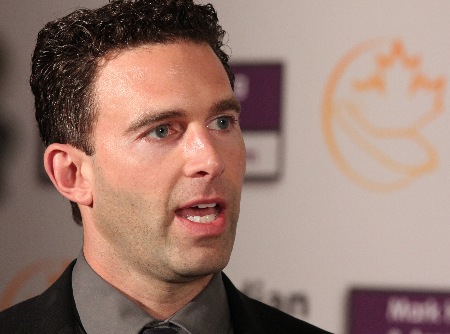
(ITWC photo)
The chairman and CEO of Wind Mobile is nothing if not bold.
On Tuesday Anthony Lacavera stood before a lunch crowd of telecommunications and regulatory officials in Toronto and demanded the Harper government radically shoulder aside the private sector in the cellular industry.
Among other things he insisted during the speech at the Canadian Telecom Summit were
–the country’s big three carriers – BCE Inc.’s Bell Mobility, Rogers Communications and Telus Corp. – be forced to either sell or close their wholly-owned so-called flanker brands (Solo, Virgin, Koodo and Chatr) – which they often pass off as entities that give choice to consumers;
–lift the ban on foreign ownership of carriers that have more than 10 per cent of the market and allow Bell and Telus to merge. Then encourage ‘Belus’ to invest in building wireless networks outside Canada rather than try to gain incremental market share here;
–if new carriers like Wind can’t get more spectrum then incumbent carriers should have to share theirs;
–carriers should be ordered to build one wireless network in rural areas that competitors have to share. That way resources aren’t wasted building duplicate networks.
Along the way Lacavera lobbed a few grenades, like saying Bell, Rogers and Telus “have the highest ARPUs (average revenue per user) in the universe” engage in anti-competitive behaviour and are hoarding spectrum.
Well, if you have to give a speech why should it be boring?
But, he said, he’s serious about all his proposals. Considering that Wind and fellow new entrants Mobilicity and Public Mobile have only been able to chip away at the incumbents’ market share in the past two years or so, its no wonder he says the celluar business is at a crossroads.
Wind, which has about 600,000 subscribers and its major investor, VimpelCom,, wants to buy out Lacavera and is said to be looking for a buyer for the Canadian division. Mobilicity – which says its close to bankruptcy with 250,000 subscribers – wants to be bought by Telus . Public Mobile is said to be looking for new investment.
The only solid new entrant is Quebec’s Videotron.
Lacavera is almost always buoyant, and he was Tuesday after Industry Minister Chrisian Paradis torpedoed the Telus-Mobilicity deal.
Ottawa nixes Telus-Mobilicity deal
Under Industry Canada rules, Mobilicity can’t sell its spectrum to an incumbent until February, 2014. That’s part of a five year ban Wind and Videotron have to follow as new entrants that bought specially set-aside spectrum in 2008. (The five years started in 2009 when they got their licences.)
But Paradis said flatly he won’t allow new entrants to transfer their spectrum to an incumbent carrier before the five year ban expires.
“Going forward, proposed spectrum transfers that result in undue spectrum concentration — and therefore diminish competition — will not be permited,” Paradis added.
That covers Public Mobile’s spectrum, which isn’t covered by the ban.
Paradis said he will shortly issue
He also said spectrum sales by carriers will be judged individually, with the decisions and explanations released publicly.
Lacavera is delighted with the decision.
Ottawa isn’t shutting the door on incumbents getting more spectrum, he said, but it is saying it wants to ensure there are four wirelessss carrier in every region, and that they have sufficient access to spectrum.
While financial analyst Dvai Ghose of Canaccord Genuity doubts that Paradis’s Tuesday statement will encourage investors to put their money in Wind, Mobilicity or Public Mobile, Lacavera disagrees.
“This policy makes it very clear how spectrum transfers are going to be governed and that the government is going to assess transfer proposals on the desire to have four carriers in every region in the country.
“The government was abundantly clear that a fourth carrier in very region will have access to sufficient spectrum in every region to roll out LTE services, and that means you have businesses that are more financable. So I think there is a story for the capital markets.”
Wind, he maintained “is a viable going concern” that will have positive EBIDTA (earnings before interest and other charges) next year.
As for that speech, Lacavera says it was tame: It was tougher before Wind’s lawyers saw it.